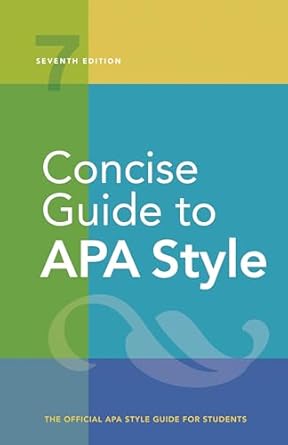[toc]
who vs whom mastering pronoun usage in english
Concise Guide to APA Style: 7th Edition (OFFICIAL)
Page 71 Review
Understanding Pronoun Usage: A Deep Dive into ‘Who,’ ‘Whom,’ ‘That,’ and ‘Which’
This excerpt from a grammar and usage guide provides valuable insights into the correct usage of relative pronouns, specifically focusing on ‘who,’ ‘whom,’ ‘that,’ and ‘which.’ Mastering these pronouns is crucial for clear and effective writing.
Let’s break down the key points discussed.
Distinguishing Between ‘Who’ and ‘Whom’
The guide begins by addressing the common confusion between ‘who’ and ‘whom.’ It offers a simple yet effective method for determining the correct pronoun: substitution.
“If you can substitute ‘he,’ ‘she,’ or ‘they,’ then ‘who’ is correct.
In the following examples, ‘who’ and its replacement personal pronoun are highlighted to show the substitutions.
The sentence with the substitution is a way to verify whether the original sentence is correct.”
The examples provided clearly illustrate this principle:
Correct Usage of ‘Who’
“The participants who passed the exam were given course credit.”
Substituting ‘they,’ we get: “They passed the exam and were given course credit.” This substitution makes sense, confirming that ‘who’ is the correct choice.
Incorrect Usage of ‘Who’
“Eligible participants were mothers, each of who had a child under the age of 21 with cancer.”
Substituting ‘they,’ we get: “Eligible participants were mothers; each of they had a child under the age of 21 with cancer.” This sounds grammatically incorrect, indicating that ‘who’ is not the appropriate pronoun.
Similarly, the guide explains the use of ‘whom’:
“Likewise, if you can substitute ‘him,’ ‘her,’ or ‘them,’ then ‘whom’ is correct.”
Correct Usage of ‘Whom’
“Eligible participants were mothers, each of whom had a child under the age of 21 with cancer.”
Substituting ‘them,’ we get: “Eligible participants were mothers; each of them had a child under the age of 21 with cancer.” This substitution works, confirming the correct usage of ‘whom.’
Incorrect Usage of ‘Whom’
“The participants whom passed the exam were given course credit.”
Substituting ‘them,’ we get: “Them passed the exam and were given course credit.” This is clearly incorrect, highlighting the inappropriate use of ‘whom.’
Understanding Restrictive and Nonrestrictive Clauses: ‘That’ vs. ‘Which’
The excerpt then delves into the distinction between restrictive and nonrestrictive clauses, focusing on the relative pronouns ‘that’ and ‘which.’
“Relative pronouns (e.g., ‘who, whom, ‘that,’ ‘which’) introduce an element that is subordinate to the main clause of the sentence, and that subordinate clause may be either restrictive or nonrestrictive.”
Restrictive clauses, also known as ‘that’ clauses, are essential to the meaning of the sentence and are not set off with commas.
“Restrictive clauses—also called ‘that’ clauses—are essential to the meaning of the sentence.
Restrictive clauses are not set off with commas.”
Here’s an example:
“Therapist self-disclosure that conflicts with the patient’s story might hinder the therapeutic process.”
The guide explains that in this case, only the self-disclosure *that conflicts with the patient’s story* is being discussed, not all self-disclosure in general.
The ‘that’ clause is crucial to defining the specific type of self-disclosure being referred to.
Key Takeaways
This excerpt provides a concise and practical guide to mastering the usage of ‘who,’ ‘whom,’ ‘that,’ and ‘which.’ The substitution method offered for ‘who’ and ‘whom’ is particularly helpful for writers struggling with these pronouns.
The explanation of restrictive and nonrestrictive clauses clarifies the appropriate use of ‘that’ and ‘which,’ ensuring greater accuracy and clarity in writing.
By understanding these grammatical principles, writers can improve the precision and effectiveness of their communication.
Buy full ebook for only $18: https://www.lulu.com/shop/american-psychological-association/concise-guide-to-apa-style-7th-edition-official/ebook/product-rmzpq54.html?page=1&pageSize=4
Who Vs Whom Mastering Pronoun Usage In English
Read more: Mastering Reference Lists: A Guide to Accurate Citations


Leave a Reply